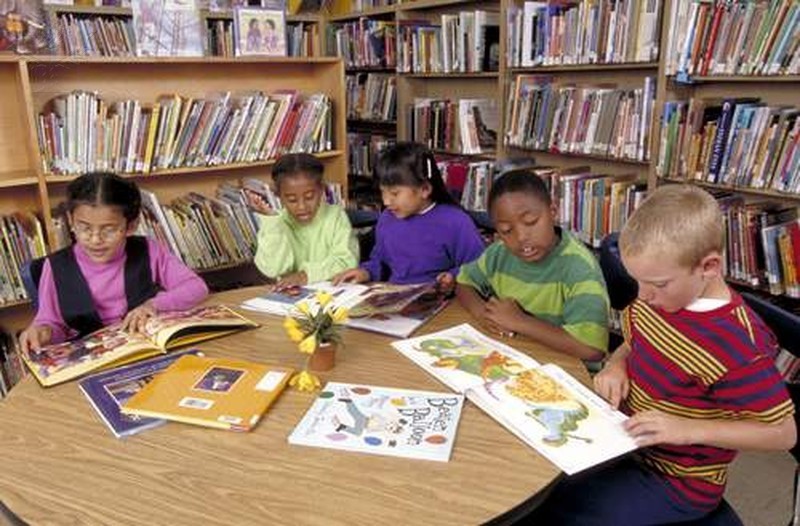Community Partners related to Autism
Community Partners related to Autism
Topic 5: Community Partners

There are many reasons that a library may conduct a needs assessment. However, for our purposes we are looking at improving library resources, services, and programs in order to make sure the community knows that we welcome people with autism, as well as their families who may be looking for information regarding autism. As discussed earlier, involving community organizations and creating partnerships can be extremely beneficial. This is especially true when trying to make a library more accessible for a certain group of people. Take a look at the following examples from Autism Speaks, a leading autism science and advocacy organization.
Example #1: Partnering with Online and Technology Services
On March 28, 2012 Autism Speaks announced its partnership with a number of organizations in their Light It Up Blue awareness campaign to raise Autism Awareness throughout the month of April. The organization encouraged people, companies, government officials, and numerous other groups to "light it up blue" to show support and spread information about autism nationally. Their effort would not have been possible without community partners. Marc Sirkin, vice president of social marketing and online fundraising for Autism Speaks explained further,
"Thanks to their support, our online presence will continue to grow and reach new audiences with our message of compassion and the importance of early screening for autism" (Autism Speaks, 2012).
Their partners included Microsoft, Twitter, Google, AOL, Barnes & Noble, Blackbaud, Outfit7, CareZone, Careverge, Audax Health, HandHold Adaptive, Lamar Digital Advertising, The Social Express, and Bodega Studios. Each partner played a different role in the initiative. For more information visit the Autism Speaks news section regarding Online Tech Leaders. To see national examples of how this effort came to fruition visit the Light It Up Blue page on the Autism Speaks website.
Example #2: Partnering with Bookstores

In April, 2008, Autism Speaks partnered with Barnes & Noble to raise awareness in honor of Autism Awareness Month and featured special Storytimes in Barnes & Noble locations all over the country. Over 500 stores participated in the effort and even hosted celebrity guests to read to children and teach families about autism. After hearing Jesse Plemons, an actor in the TV series Friday Night Lights, read to her two children, Beck Hydrick, a Kindergarten teacher, stated, "this is the kind of communication that we need in our classrooms. We need to reach the classmates and friends of those affected by autism – and the younger the better" (Autism Speaks, 2008). Read more testimonials from this effort on the Autism Speaks news page on the Barnes & Noble Storytime Series.
ACTIVITY: Based on the two examples above from Autism Speaks, why was their partnership with these organizations and businesses successful? Would their efforts have been as successful without them? Why or why not?
As a national organization, Autism Speaks creates partnerships that reach far beyond what most will be experiencing at a local public library. Take a look at the next examples to see how partnerships are still vital, even when on a smaller scale. The following were provided by the Targeting Autism white paper and explain how community collaboration helped librarians efforts by reaching more people.
Example #3: Partnering with Health Services
Public librarians from six different counties in Illinois partnered with Marianjoy Rehabilitation Hospitals to interview and survey stakeholders in individual counties. The data revealed gaps in services and resources, especially those focused on helping people with autism transition into adulthood. As a result, the Marianjoy Medical Library added a section of transition age Information Connections website and several libraries took up programming to meet the needs of this special population of young adults (Schriar, 2017, p. 22-23).
Example #4: Partnering with Schools

Many public libraries partner with schools to help in their efforts for a number of different projects. The Skokie Public library in Illinois partnered with their school library to improve the transition for students with autism from the school setting into adulthood. This involved community agencies and provided vocational training for students. Special education teacher Jan Pearcy stated, "I've been in special ed[ucation] my entire [working] life and I really have never thought about using the local library as a collaborator" (Schriar, 2017, p. 23).
Example #5: Partnering with Organizations
Partnering with organizations that focus on individuals with disabilities is extremely beneficial. Look for organizations that have a National presence such as the National Council on Independent Living orthe Arc. They will have state affiliations or state partnerships with which you can collaborate. Often, these organizations can provide a wealth of knowledge on people with disabilities, which is something librarians might lack. The Arc, for example provides advocacy and services that "encompass all ages and more than 100 different diagnoses including autism, Down syndrome, Fragile X syndrome, and various other developmental disabilities" (The Arc, 2018 ).
If looking for local autism organizations near you, visit The ARC - Autism now site at http://autismnow.org. Also explore the Autism Speaks Community and Support Network database to see an example of what is available in NY. Search any state and then enter your zip code to find organizations near you!
Activity: View the following video provided by Akron-Summit County Library and the Akron Autism Society about their Sensory Story Time: A program designed for families of children with autism (cut at 2:13). Give two examples of how partnering with organizations or conferring with stakeholders contributed to the success of this program.
References
Autism Speaks. (2018). Retrieved February 08, 2018, Retrieved from https://www.autismspeaks.org/
Schriar, S., Foerster, P., & Pelich, M. Targeting Autism. (2017). Libraries partnering to serve the autism community: National forums offer direction. Retrieved from
http://www.cyberdriveillinois.com/departments/library/libraries/pdfs/targeting-autism-whitepaper.pdf.
